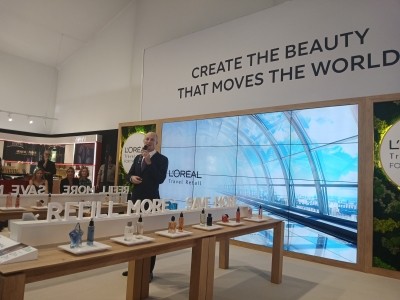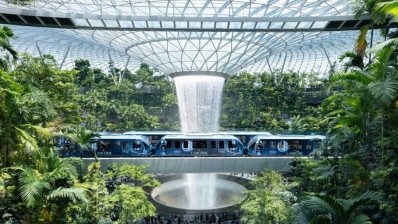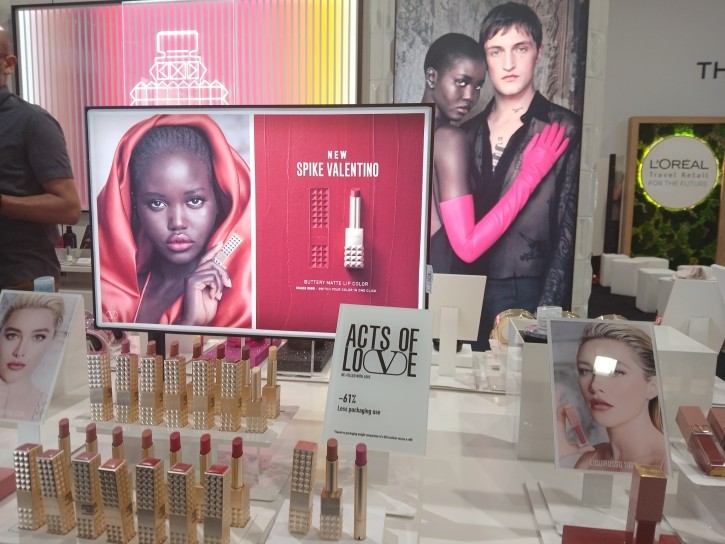At the TFWA Global Summit in Cannes, the L'Oréal Group revealed more about its travel-retail strategy, including its future focus on activations and sustainability.
L’Oréal president for travel-retail Emmanuel Goulin said he was “confident about the future of beauty” and “confident about the appetite for travel”, noting that there are more airports being built and expanded, and that there is more demand for this channel.
However, he also flagged up that since the Covid pandemic, there has been a “shift in the industry” and that right now, “business is not growing as fast as the traffic.”
“A reset must be done at a business level,” he said. Highlighting that the industry “must be more experiential” and that this sector needs to “build connection and emotion.”
“The airport needs to be more of a destination and more exciting,” he stated.
Goulin noted that L’Oréal has the biggest and most diverse portfolio of all of the beauty businesses within the global travel-retail sector and that it has also opened up new categories. For example, hair care is still considered a ‘niche’ category within travel-retail, despite being a key category in other sales channels, and L’Oréal launched into this channel with its luxury hair care brand Kérastase in 2014.

A focus on experiential activations
Goulin said that the French multinational has also put more focus on experiential activations in the travel-retail sector too. For example, the Lancôme Domaine de la Rose interactive fragrance experience was rolled out at 40 airports across the globe last year, and Goulin revealed that the brand now has plans to open a ‘Lancôme Café’ later this year.
Lancôme has also just launched its largest activation to date, at Singapore’s Changi Airport, which focuses on its hero skin care product Génifique.
The global exclusive Génifique Ultimate Travellers Repair Clinic features an AI travel beauty consultant. As part of the activation, the brand has also transformed the Jewel Changi Airport sky train, and has an exclusive WeChat ‘mini programme’ that is “changing the way travellers engage with luxury brands online and offline.”
Meanwhile, another brand, Yves Saint Laurent, recently held an animation in Doha’s international airport where it utilised geotargeting to reach new potential customers.

Travellers want more sustainable products
Along with its focus on interactive retail experiences, L’Oréal also talked about its focus on prioritising sustainability within the travel-retail channel.
It noted that brands in the travel-retail sector “have a role to play because they can offer consumers a new way of life.”
Sustainability has been a focus for L’Oréal Group for the past decade (it hired a Chief Sustainability Officer back in 2015) but this has been accelerated in recent years to the point whereby the company’s CEO now gives its quarterly financial results updates alongside ESG updates.
The French multinational said that the company’s research found that 74% of travellers wanted a more sustainable offer from their travel-retail experience.
Going forward L’Oréal said it now has three main aims for its travel-retail division:
- To drive ‘net zero fundamentals’ (for example, via eco-design principles).
- To become a destination channel for at-home refills. It highlighted a piece of consumer research conducted by Lancôme travel-retail that revealed that 90% of travellers said that refills showed a “caring and considerate brand” that “reflected social responsibility.”
- And to lead retailer sustainability roadmaps.

